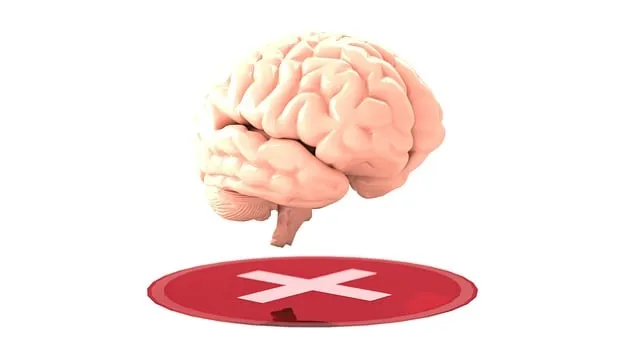Positive thinking, accessible through Kaiser Northglenn's resources like workshops and podcasts, is a powerful tool for improving mental well-being, reducing stress, and increasing life satisfaction. Overcoming personal barriers like past traumas or cultural influences is crucial, with mental health education and coping skills development fostering resilience. Simple exercises like gratitude journaling and affirmation practices, integrated into daily routines with help from Kaiser Northglenn, significantly enhance emotional regulation. The organization provides comprehensive services, including therapists, counselors, and support groups, focusing on holistic well-being through mindfulness, cognitive reframing, and empathy building. Engaging regularly with these services promotes a positive mindset, leading to improved life satisfaction, and offers long-term strategies for depression prevention and stress management, encouraging individuals to learn how to get mental health support through Kaiser Northglenn today.
Positive thinking exercises offer a powerful tool for enhancing mental well-being. This article delves into the transformative potential of cultivating optimism, exploring its profound impact on overall mental health. We’ll guide you through identifying personal barriers to positive thinking and provide practical strategies for implementation. Furthermore, discover how Kaiser Northglenn’s resources can bolster your mental health journey, offering accessible paths to securing top-tier mental health services.
- Understanding Positive Thinking and its Impact on Mental Well-being
- Identifying Personal Barriers to Positive Thinking
- Practical Implementation of Positive Thinking Exercises
- Leveraging Kaiser Northglenn's Resources for Enhanced Mental Health Services
Understanding Positive Thinking and its Impact on Mental Well-being

Positive thinking is a powerful tool that can significantly impact an individual’s mental well-being. It involves cultivating optimistic attitudes and reframing negative thoughts, leading to improved emotional resilience and overall life satisfaction. By focusing on the positive aspects of life and situations, people can reduce the intensity of stress and anxiety, which are prevalent issues in today’s fast-paced world.
This simple yet effective practice has been a cornerstone of various mental wellness programs, including those offered by organizations like Kaiser Northglenn. They provide resources such as Anxiety Relief workshops, Stress Management sessions, and even Mental Wellness Podcast Series Production to guide individuals toward positive thinking habits. These initiatives empower people to take control of their mental health and discover the transformative power of optimism in their daily lives.
Identifying Personal Barriers to Positive Thinking

Many individuals face personal barriers when attempting to adopt a positive mindset. These barriers can stem from various sources, including past traumatic experiences, chronic stress, or even cultural influences that promote negative thinking patterns. Recognizing and understanding these obstacles is the first step towards overcoming them. For instance, some people might struggle with self-doubt and a persistent negative inner dialogue, which can be challenged through coping skills development and mental health education programs designed to foster resilience building.
When considering how to get mental health services through Kaiser Northglenn, individuals should not hesitate to seek support for these specific challenges. The process of identifying personal barriers is an essential part of embarking on a journey towards improved mental well-being. By addressing these barriers effectively, one can enhance their ability to cultivate positive thinking habits and overall resilience.
Practical Implementation of Positive Thinking Exercises

Implementing positive thinking exercises into your daily routine is a powerful way to enhance mental well-being and navigate life’s challenges with a healthier mindset. To begin, start small by dedicating just 10-15 minutes each day for practice. Techniques like gratitude journaling, where you reflect on the positives from your day, can be highly effective. Write down three things you’re grateful for; it could be as simple as enjoying a warm cup of coffee in the morning or having a supportive conversation with a friend. This practice encourages individuals to focus on the abundant good in their lives.
Additionally, consider incorporating affirmation practices to boost confidence and resilience. Choose positive statements that resonate with you and repeat them daily, such as “I am capable” or “I embrace challenges.” Over time, these affirmations can become a guiding light during difficult times. Kaiser Northglenn offers resources for mental health support, including guidance on accessing services tailored to your needs, ensuring individuals have the tools to integrate positive thinking exercises into their lives effectively and promote emotional regulation.
Leveraging Kaiser Northglenn's Resources for Enhanced Mental Health Services

Kaiser Northglenn offers a wealth of resources for individuals seeking improved mental health services. With a focus on holistic well-being, they provide comprehensive care that includes access to therapists, counselors, and support groups tailored to diverse needs. For those looking to integrate positive thinking exercises into their routine, Kaiser’s network of professionals can guide you through effective strategies such as mindfulness practices, cognitive reframing techniques, and empathy building activities designed to enhance emotional resilience.
These resources are not limited to addressing immediate concerns; they empower individuals with long-term tools for depression prevention and stress management. Through regular engagement with Kaiser Northglenn’s mental health services, members can cultivate a more positive mindset, fostering environments conducive to improved mental health and overall life satisfaction.
Positive thinking exercises, when seamlessly integrated into daily routines, can significantly enhance mental well-being. By understanding its impact and identifying personal barriers, individuals can harness the power of optimism. Leveraging resources like those offered by Kaiser Northglenn provides accessible avenues to strengthen mental health services, making it easier for folks to embrace a more positive outlook on life. With consistent practice, these strategies can foster profound transformations, ultimately revolutionizing one’s mental resilience and overall happiness.






